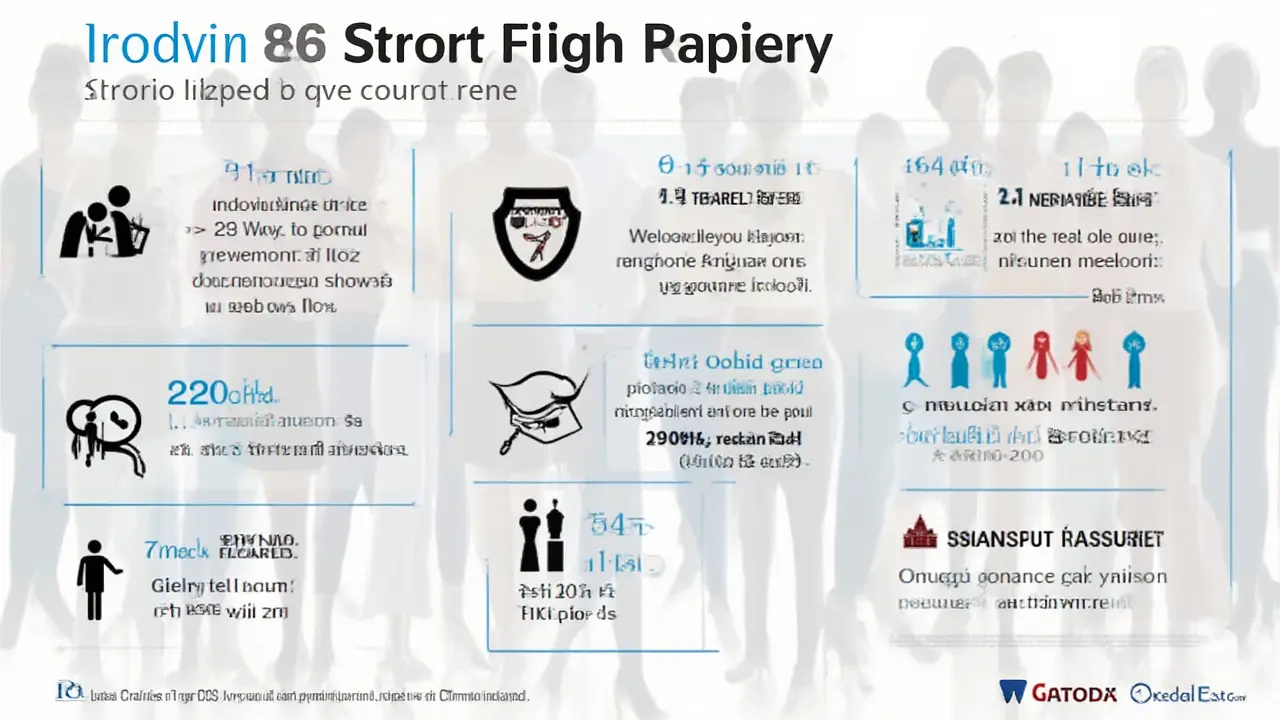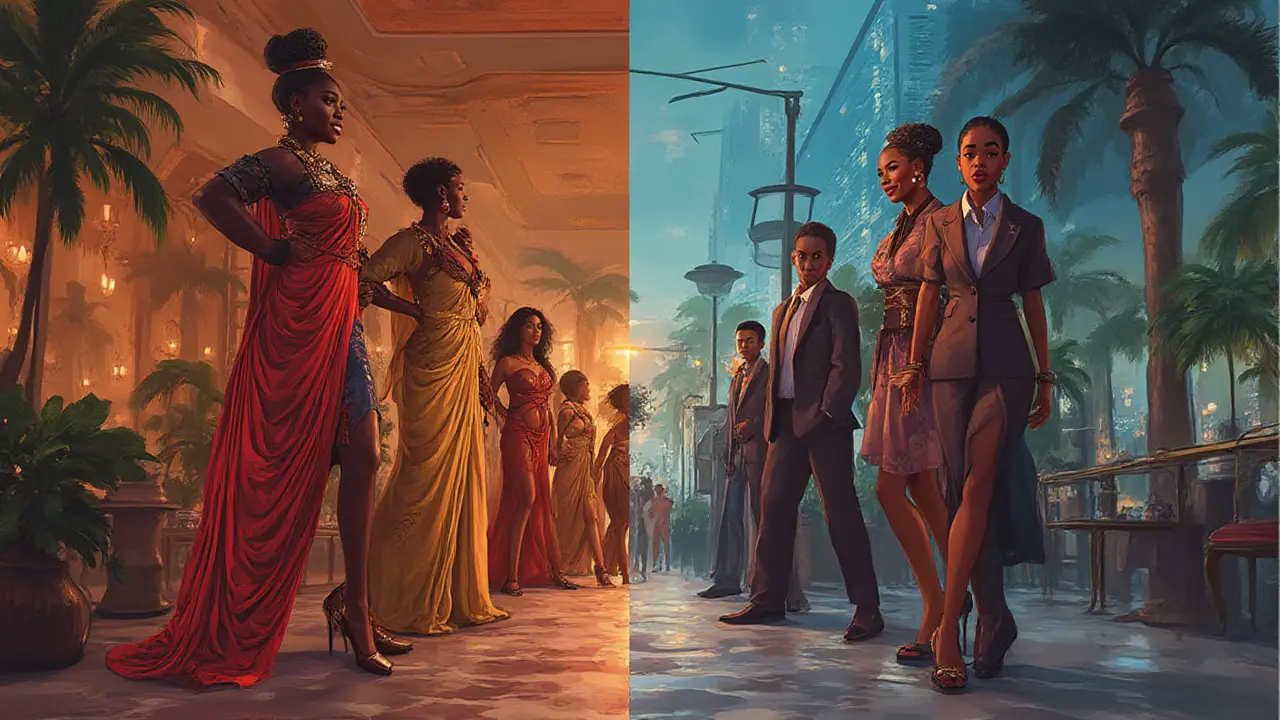Dating scenes shift fast, but none do so quite as dramatically as the world of Owo escorts. Whisper curled up on my laptop while I searched for something engaging to watch, but the real story was unfolding right in front of me—a sector reshaping at lightning speed right under people’s noses. While some hush up at mention of escorts, the facts speak volumes: Owo’s scene for companionship didn’t just evolve, it turned a full circle. Grab your tea (or whatever’s in your mug) and buckle up.
Tradition in the Night: Origins and Early Days of Owo Escorts
Picture Owo in the twilight of the 20th century: low lighting in city streets, whispers exchanged at roadside stalls, and the air thick with possibility. Escorting here started old-school, almost always through hushed, word-of-mouth introductions. It wasn’t glamorous—think trusted go-betweens, known faces in local beer parlors, or those “aunties” in the neighborhood with everyone’s secrets. Nobody placed ads in newspapers, and you’d never find fliers draped on lampposts.
Owo is in Ondo State, Nigeria, with traditions that value strong interpersonal networks. The city’s growth naturally nudged its private side forward. A popular story goes that early escorts worked discreetly for expats—oil workers mostly—during Owo’s development boom. Word traveled through tight channels: wives of businessmen, bar owners, even tailors quietly familiar with such arrangements.
Despite the secrecy, money was moving. In 1998, whispers counted around 60-70 escorts operating in Owo—a figure that’s since grown by more than tenfold, according to a 2022 University of Nigeria study. Escorts weren’t viewed as high society but occupied a gray zone, both shunned and protected. Reliable income was tough. Some supported family back home, others juggled jobs at restaurants or as students. Privacy wasn’t only desired for the client—a misfired rumor could ruin more than one reputation.
If you check old stories and interviews from local papers like The Hope, you’ll notice a recurring thread: no smartphones, no handy getaways, just guts and old-school codes. Escorts back then worked through trust and lived by rules: no violence, no public drama, and always know your contact. Most arrangements played out in shadowy motels or clients’ private houses—nobody risked public attention. Still, even as it operated in the margins, the sector played a genuine role by offering social support for people too shy or discreet for mainstream dating.
One interesting thing is how much Owo’s traditional escort scene imitated local customs. Everything was built on introductions—friend vouched for friend, family kept silent, and codes of behavior were strict. To put it in perspective, people in this part of Nigeria have a saying: "Ẹnìyàn so bí ẹnìyàn lọ́run"—one person brings another comfort. That comfort could range from companionship to more intimate arrangements.
Sometimes, tales circulate of old-school networks that only allowed entry through a recommended client, making each newbie part of an unofficial “circle.” The hush-hush system meant fewer scams and more protection. Compare this to today’s world, where a stranger’s DM sets things in motion. Yet, stories still rear their heads about how rules were fiercely upheld. Anyone caught leaking information or acting out faced instant exile from the scene—there just wasn’t space for recklessness.
Early numbers are hard to track because of secrecy, but precise anecdotes surface: In 2004, a single beer parlor in Owo stood at the center of over 15 individual arrangements, according to the owner, “Mama F.” The escort fees, while confidential, were also far from today’s price range: 2,000 to 5,000 Naira per session was the common deal. Nightlife was limited, and digital technology was still a distant wave. Even so, escorts—especially those with local ties—could bank on referrals for months.
It wasn’t all safe, of course. Stories about dark turnarounds, accidental meetings with acquaintances, or brush-ins with law enforcement linger in some families’ talk. Privacy could slip, and not everyone found fortune in the game. The risks kept everything tightly under wraps—making later changes, and especially the rise of smartphones and apps, feel almost outrageous for the older crowd.

Turning Point: Tech, Social Shifts, and Modernization
Fast forward to the late 2000s. Tech swept through Owo like wildfire; even my kid Corin giggles at tales of the “pre-phone” era. With basic cellphones came SMS—suddenly, arranging meetings didn’t require a whole committee. It’s wild thinking how one Nokia could change the whole feel of a night out, but it did. Gradually, those who once hid behind local bars started advertising gently—coded lines in newspaper classifieds, or cryptic SMS blasts among contacts.
By 2012, social media’s tidal wave crashed onto Nigeria’s shores for real. Instead of beer parlors, apps like Facebook and later WhatsApp became the new private meeting ground. There’s even a fun fact: In a 2021 Owo local survey, over 80% of escorts said they found modern clients through social apps. All that careful reputation-building from before got digitized. Now, comfort and risk both ratcheted up—one swipe could open the door for someone brand new, but it also meant scammers and fakes were just as close.
During these years, a generation drifted away from rules and secret codes. Many newcomers skipped introductions, plugging right into modern chat groups or specialist escort platforms. It changed everything. Escorts could set their own terms, working on demand and often across several cities. Payments moved online or even cashless, thanks to trusted “middlemen” who took small cuts for arranging transactions. Digital payment receipts, often using aliases, replaced thick paper ledgers of old.
Modernization didn’t end with smartphones. By 2019, a handful of apps tailored for Nigerian escorts began circulating underground: app names keep changing thanks to police crackdowns, but the concept stuck. Escorts started sharing safety tips online, forming invisible Facebook groups (sometimes just called “Support Space Owo”) where women could warn each other about bad clients or locations to avoid.
One detail that shocks new clients: today’s Owo escorts often run fully documented profiles—an industry first. Many include favorite locations, communication preferences (most prefer WhatsApp or Signal), and even health status, updated regularly. It’s an extra assurance that signals “safety first.” Escort vetting has gone digital as well; reviews, client ratings, and red-flag warnings travel fast between trusted online circles.
A huge leap happened between 2020 and now. The COVID-19 pandemic disrupted Owo but also forced digital adaptation. Escorts who’d mostly relied on hotels or guest houses started to move toward secure, in-home meetings or “virtual” companionship. Physical contact dropped, but video calls and text-based companionship services actually grew by about 30%, per a 2023 Owo Sex Work Insight Project report.
Let’s be honest: every advance brought new problems. Scams climbed sharply—both from fake service providers and clients who bailed after services rendered. Groups began relying on two-factor authentication, referral codes, and even test payments to filter out bad actors. Meanwhile, law enforcement got wise, so caution was always the word. It mirrors the shift you see in ride-sharing and online shopping: tech raises the stakes for both sides.
How do numbers stack up today? Take a look at this quick summary:
| Year | Estimated Active Escorts in Owo | Popular Contact Method | Average Fee (Naira) |
|---|---|---|---|
| 1998 | 65 | Word-of-mouth | 3,500 |
| 2012 | 350 | SMS/Social Media | 7,000 |
| 2024 | 850+ | WhatsApp/Apps | 18,000 |
The jump in numbers and prices lines up with how convenient things have gotten—but so do the dangers. Folks often recommend that anyone (client or provider) verify identities, agree on prices up front, and prefer public meeting spots for first encounters. What’s become very “modern” is how everyone’s expected to look out for themselves and others, not just hope the old guard’s wisdom holds.
What about attitudes? More young Nigerians see escort work as a job like any other, especially given tough employment odds. “It’s not about the shame—it's about cash and safety,” a recent university graduate told BBC News Yoruba. Discussions that once happened behind closed doors are now sparking on forums where anyone can chip in—again, a side-effect of the smartphone leap. People flip between digital and personal, keeping one step ahead of new problems but also shaping solutions the old ways never could.

Modern-Day Owo Escorts: Trends, Ethics, and Smart Choices
So where are we today? This slice of the economy never sits still. Now, Owo escorts offer everything from in-person dates to all-digital “companionship sessions.” Popular services include dinner dates, business event accompaniment, or online-only emotional support. As surprising as it is, weekly “virtual dinners” have become a hit: dozens of companions connect over WhatsApp video for paid mealtime chats, no strings attached.
Today’s biggest shift is transparency. Escorts now publish clear rules about what they will or won’t provide. Clients looking for a discreet dinner get a straight answer, while those after more “adventurous” encounters must agree to boundaries—no more guesswork. Some provide online contracts, making sure expectations match before anyone leaves home.
Ethics are another hot topic. Many in the business push for regular health checks, safe meeting spots, and even background checks for repeat clients. Escort support groups feature guides on recognizing red flags—like clients who ask too many personal details or dodge payment agreements. Trusted forums list “good” and “bad” clients, saving others from headaches. These strategies upend the idea that escorts are unprotected or unaware.
Privacy tech now comes baked in. Apps let providers mask their real number, set emergency alerts, or share rides in real time—think of apps like Bsafe or GeoZilla as their silent bodyguards. Whisper, our family cat, has more privacy than some people I know, and escorts are catching up—good thing too. Even payments are encrypted, often sent using e-wallets or through trusted local agents. If a client pushes for cash only, it’s now seen as a warning flag.
Here’s an insider tip for people considering reputable service or just seeking safe company:
- Always check for recent reviews—if a provider or client barely has a digital footprint, ask direct questions.
- Decline any meeting in a non-neutral, poorly lit, or isolated space, especially on first meetups. This isn’t a detective movie—everyone deserves to feel secure.
- Be upfront about financial agreements. Hidden extras or last-minute changes are the top source of disputes.
- Stay in digital communication with a trusted friend, even if it feels over-cautious. Modern escorts often share live location with someone reliable. Borrow this trick if you’re on either side.
- If something feels "off," don’t power through. Respect instincts—they’re often spot on, even in digital times.
Legal and social headwinds haven’t slowed the shift. Nigerian law still marks many aspects of escorting as illegal, but in practice, adaptation wins out. A 2024 study by the Social Health Advocacy Project found less than 7% of Owo escorts had police trouble in the past year—a steep drop from 25% two decades ago, thanks to better digital caution and local acceptance. Society slowly shifts, often because today’s scene isn’t just survival—it's organized, safer, and more respected by its own standards.
If you ever find yourself snagged in old prejudices, remember this: those working as *Owo escorts* often do so with more professionalism, digital savvy, and mutual respect than most gig workers. The smartest play? Stay aware, appreciate boundaries, remember safety, and trust the process that got this world from coded whispers to modern, high-tech, and—sometimes—heartwarming connections. Now, if only I could keep Whisper from pawing at my screen while I fact-check tonight’s stories.




